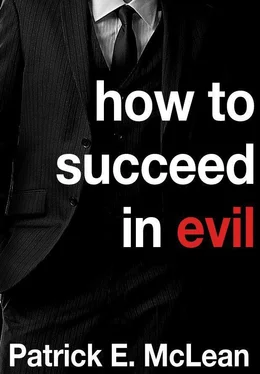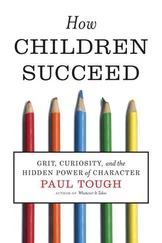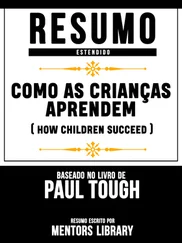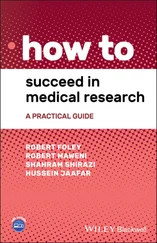Perhaps Lifto still struggles against Excelsior. Perhaps the struggle was over and the rescue crews were simply dealing with the collateral damage. It matters not. Edwin knows the broad strokes of it. Lives have been lost. Property has been damaged. Resources have been squandered. Few, if any, will notice. They will be too busy watching the explosions to ask what it might cost. It will be entertainment for the masses already swollen with entertainments. Why have bread and circuses when you can have the Superpowered?
But Edwin will count the cost. He will count everything. As he holds Agnes and weeps, he even counts his tears.
Chapter Forty-Three
Edwin Dresses for the Funeral
Steam rolls over the white tiles as Edwin Windsor stands, absolutely motionless, in the vortex of a six-headed shower. Although his long frame does not move within the womb-like embrace of the warm water, his mind ranges farther, ever farther. As if this white cell was not a bathroom, but rather a chamber in some sophisticated steam engine designed to harness the heat generated by his thoughts as they spin around the circumference of his brain.
Somewhere deep within himself, Edwin comes to a conclusion. His eyes open and his body becomes animated again. With the shower still running, Edwin steps onto the impossibly clean white tile. As he stands in front of the mirror, he can see himself only as a vague abstraction in the steamed surface. And there, before he even has a chance to grab a towel, a thought traverses the depths of his mind. Like a glimpse of a large fish in murky waters, he barely sees enough to describe it.
He searches his reflection. What if this undefined form — this sloppy, imprecise, ungraspable view of the world is reality? What if sharp outlines are merely illusions created by strong minds? What if there is no precision? No terms? No categories? What if all of it is merely the play of light across a steamed mirror? Is that why everything seems to fall apart? Is that why it was all apart to begin with?
He wipes the mirror with a towel and opens the door to let the moist air out. He whips shaving cream to a lather with a badger hair brush and applies it to his face. The warmth of the lather and the reassurance of the ritual is soothing. Only after his face is prepared does he open the drawer. Alone in the center of the long drawer is the razor and nothing else.
He touches the cold steel to his neck, and for a moment, all thought focuses on the question of suicide. Of course he asks it. No man has ever felt an edge across his jugular and not, with varying degrees of sophistication, considered his own mortality. Crude men think of death as a bodily function, as unpleasant as kicking over a full bedpan. Ordinary men try to cover it over with bad analogies — a snake sloughing off the skin or the timeworn relation between caterpillar and butterfly. Religious men think of heaven. Impious men of unfinished revenge. But Edwin Windsor is not like any of these.
In Edwin’s mind, death is exact. He can imagine it for what it is, a quick slip sideways, the sudden warmth on his neck and chest, lightheadedness, ringing in the ears, but no pain. Then the cold of the tile as he lies down and the warm stuff of his life sullies the floor. Peaceful. Inevitable. Definitive.
At the edge of this grim reverie, he imagines a function stretching out over time. The accretion of money and utility that all the moments of his life have brought and will bring. The part that came before is lost forever. Childhood and yesterday were, after all, only sunk costs. And the future, unknowable, but not inestimable. And where he stands in a perfectly white bathroom with a razor at his neck is the impossibly sharp edge of the now. Valued by the expectation of all future worth discounted back to this moment — a series, a summation, the equation of the value of his life. And with this in his mind he slides the razor along his skin, instead of through it.
The hair is parted from his face with a crackling whisper. He wonders if there isn’t something else. Something unmeasurable. If he took the summation and subtracted the crude utility of his life from it, would there be something left over? A something which makes all other measures truly and perfectly ridiculous? The immeasurable. The incommensurate. The soul. The a priori behind and yet still somehow beyond all biological demands.
Edwin splashes water on his face, and searches for his soul as plainly and practically as one might look for a spot that he has missed shaving. Edwin finds nothing.
In the next room he dons a broadcloth shirt and closes it with platinum cufflinks. He selects a black silk tie and turns to the new suit laid out on the bed. Mr. Giles has brought it himself. Carried in his hands all the way from England. This time, not at Agnes’ request, but for her funeral. When Edwin had asked him if it needed further work, Mr. Giles had shook his head no. With great emotion, he said, “It is perfect.”
The fabric of the suit is black. So black, it seems to suck light from the room. The line of the shoulders is so soft and alive, it moves like water deep underground on a moonless night. As Edwin slides the jacket over his shoulders it is as if darkness has been poured over his frame. He bends to tie a pair of shoes that have been hand-made for him by a wrinkled Italian cobbler who speaks no English.
Finally, he tucks a handkerchief into his breast pocket. Not a gaudy pocket square, but a full handkerchief of Egyptian white cotton. There will be tears, but Edwin will cry no more. His grief is absorbed by purpose. He adjusts his tie, tugs his cuffs into place, and goes to Agnes’ funeral.
Chapter Forty-Four
A Eulogy for Agnes
“Who can find a virtuous woman? For her worth is far above rubies,” Edwin says. It is from Proverbs, 31:10. As Edwin says it he can feel the dust of dry pages rolling around in his mouth. “I like to think that Agnes would have enjoyed those words, but I can not know. All I know is that I have lost.” Edwin pauses, trying to find the words. But there is no adequate vocabulary of loss.
“I have lost,” he says, attempting the sentence again. The words on the paper in front of him seem meaningless now. He cannot bring himself to say them. Everything feels heavy. His elegant frame sags. The strongest will might never bend, but even the hardest heart will surely break in the end.
And then, even though he knows it’s not possible, he hears her voice. It swells within him. Filling, for the moment, the empty place in Edwin’s soul.
“It was never supposed to be like this,” he hears Agnes say. And then he feels his lips move, and the words come from his mouth.
“It was never supposed to be like this,” says Edwin.
Now he says her words as she does. “The brave men and strong women of generations past did not sacrifice for this.” Now he knows the rest. He leaves Agnes behind, as he must. As is right and proper for a funeral, and speaks on his own.
“She, in particular, deserved better. She saw the best in all of us, even when the best wasn’t there. I am sad to say that in many ways, her life must have been a terrible disappointment. But she never gave up. She never flagged in her defense of what was sensible. She believed that, to the best and brightest among us, falls the duty of keeping the Grand Synthesis.
“In the end, the world did not come to her rescue. She was taken from us. She was taken from me. And we are all the poorer for it.
“When I was twelve, I lost my parents in a tragic accident that was beyond anyone’s power to prevent. An unfair twist of an unfair universe. And I, being young, intelligent and privileged, could not comprehend it. And not comprehending, I gave up.
“It was Agnes, then, who came to my rescue. She did not coddle or comfort in the expected way. She gave me a question, ‘Young Master Windsor,’ she asked me, ‘What will you do with your life?’ I told her that there was nothing worth doing. That there was no point to any of it. Against the overwhelming forces of cruel fate and relentless time, a man could do nothing. We were all powerless. All else was comfortable illusion.
Читать дальше


![Коринн МакКей - How to Succeed as a Freelance Translator [calibre 3.46.0]](/books/402693/korinn-makkej-how-to-succeed-as-a-freelance-transl-thumb.webp)









